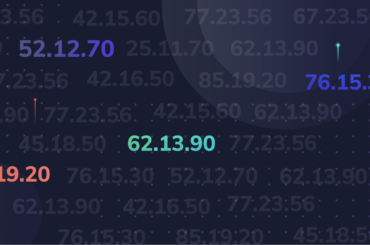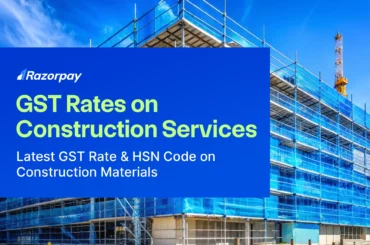The Goods and Services Tax (GST) has brought about significant changes in India’s taxation system, including its impact on real estate transactions. One crucial aspect that often raises questions is the applicability of GST on land purchase. In this comprehensive guide, we will delve into the tax implications of GST for land purchase and help you understand the intricacies involved.
Table of Contents
GST on Land Purchase: Tax Implications Explained
When it comes to GST on purchase of land, it is essential to understand the various scenarios that may arise. Let’s explore them in detail.
Sale of Land with Immovable Property: What You Need to Know
According to Schedule III of the CGST Act, the sale of land GST is neither a supply of goods nor services. Land, being an immovable property, is subject to stamp duty rather than GST. However, if the sale of land includes development or construction services, GST on land becomes applicable.
The Central Board of Indirect Taxes and Customs (CBIC) states that, “The sale of land is outside the purview of GST, but the sale of developed plots attracts GST at the rate of 18% on the value of development work.”
Composite Supply with Construction Services: GST Impact
When land is sold along with construction services, it is considered a composite supply. In such cases, GST and land transactions are intertwined. The entire consideration must be received before the completion certificate is issued to avoid GST liability.
Sale of Land Without Any Construction: GST Considerations
If the sale of land does not involve any construction or development services, it remains exempt from GST. This means that vacant plots of land, agricultural land, and land without any infrastructure are not subject to GST on plot purchase.
How GST Is Calculated on Land Purchases?
To calculate GST on land purchases that involve development or construction, the following formula is used:
Total GST = SGST + CGST
A standard abatement of 33% on the property value is considered as the land cost, and GST is calculated on the remaining amount. Here’s an example:
- Property value: ₹1,00,00,000
- Less: 33% abatement for land = ₹33,00,000
- Taxable amount = ₹67,00,000
- GST @18% = ₹12,06,000
- Total cost: ₹1,12,06,000
Impact of GST on Land Buyers: Key Takeaways
As a land buyer, it is crucial to understand the implications of GST on your purchase. Here are some key takeaways:
- Residential properties with a maximum of 15% commercial space are treated as residential for GST purposes.
- Under-construction houses may still be cheaper than ready-to-move properties, even with GST.
- Buyers should consider their investment horizon and affordability before making a purchase decision.
GST vs Stamp Duty: Key Differences
While land purchase GST rate is a central tax, stamp duty is a state-level tax. Stamp duty rates vary across states, ranging from 5% to 10% of the property value. Unlike GST, stamp duty is applicable on all land transactions, regardless of the presence of construction or development services.
Legal Precedents or Government Clarifications on GST for Land
The government has issued several clarifications and notifications regarding GST on land transactions. For instance, the CBIC has clarified that the sale of developed plots with amenities like roads, drainage, and electricity is a taxable service, and GST is applicable on the value of development work.
Conclusion
In conclusion, understanding the applicability of GST on land purchases is crucial for buyers, sellers, and developers. While the sale of vacant land is generally exempt from GST, the sale of developed plots with amenities attracts GST at 18% on the development cost. It is essential to assess the nature of the land transaction accurately and comply with GST regulations to avoid any legal complications.
Frequently Asked Questions:
1. Why is there no GST on sale of land?
The sale of land is neither a supply of goods nor services as per Schedule III of the CGST Act. Land, being an immovable property, is subject to stamp duty rather than GST. However, if the sale includes development or construction services, GST becomes applicable.
2. Does GST apply if the land is purchased with an under-construction property?
Yes, when land is purchased along with an under-construction property, it is considered a composite supply, and GST is applicable on the entire value, excluding the land cost. The effective GST rates are 1% for affordable housing and 5% for others, after considering the abatement for land value.
3. Are there any GST implications for purchasing land with a completed property?
No, the purchase of land with a completed property that has a completion certificate is exempt from GST. Only stamp duty is applicable in such cases.
4. Does GST apply to leasing or renting of land?
Yes, leasing or GST on rent of land is considered a supply of service and is taxable under GST. The GST rate for long-term lease (30+ years) and short-term lease is 18%. However, certain GST exemptions are available for specific cases, such as the long-term lease of industrial plots for infrastructure or financial businesses.
Sources:


